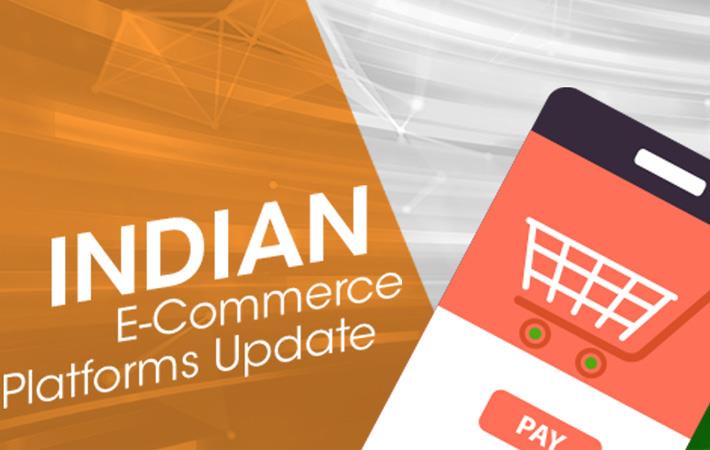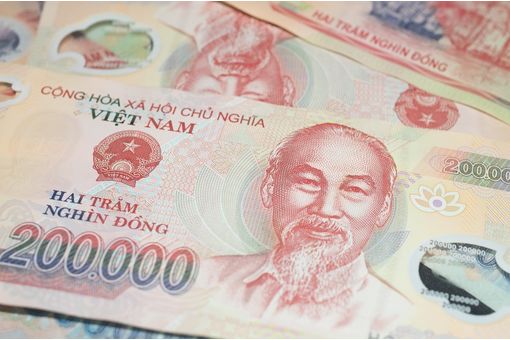Interviews
Indian e-commerce to reach $200 bn by 2026: Report
14 Sep '18
3 min read

Courtesy: Coresight
The Indian e-commerce market is expected to grow to $47 billion in 2018 and to reach $200 billion by 2026, according to a recent report. The e-retail market in India is dominated by marketplace platforms, and among the specialists, fashion pure plays take the lead. The fashion e-commerce market in India is expected to grow to $30 billion by 2020.
Offline retail is much less developed in India than it is in Western countries. Yet, there is no shortage of tech-driven disruptors bringing more choice, greater convenience and lower prices to Indian consumers through e-commerce, says the Deep Dive: Indian E-Commerce Platforms Update report by Coresight Research, the think tank for the Fung Group.
The e-commerce market in India is highly competitive and houses many medium- and small-sized players. Among the specialist online retailers, fashion e-commerce sites dominate the market, as per the report. The fashion e-commerce market in India, valued in the range of $7–$9 billion in 2017, is expected to grow to $30 billion by 2020, according to a report by Boston Consulting Group (BCG) and Facebook. The joint study expects fashion to be the first preferred category that Indian consumers buy online by 2020.
Based on net revenue figures published in regulatory filings, Flipkart and Myntra led e-commerce sales in fiscal year 2017. Flipkart acquired Myntra in 2014 in order to gain a strong foothold in fashion e-commerce. In 2016, Flipkart acquired Jabong through its Myntra unit to grow its userbase and market share. By offering fast fashion at affordable prices and being able to reach a wider audience than physical retailers, both Myntra and Jabong have achieved market dominance in online fashion, and other players have had little luck in displacing them.
The report further adds that during the early years, a lack of competition resulted in the growth of players such as Flipkart, Snapdeal, Quikr and Bigbasket. But more recently, the market has witnessed increased competition and increased investments from global players such as Amazon, Alibaba and most recently Walmart, which acquired a 77 per cent stake in Flipkart.
With each of these international firms pledging increasingly larger amounts of investment in India, it appears that the e-commerce battle in the country will be limited to them and not to the homegrown companies.
Going by the latest developments in FDI in e-commerce in India, a draft e-commerce policy unveiled on July 30 might negatively impact the foreign stakeholders in Indian e-commerce if implemented. The draft policy proposes a ban on: bulk buying, group companies of online marketplaces influencing prices and short-lived deep discounts. If the policy is finalised with these proposals, e-commerce companies may find it more challenging to compete and maintain market share.
The India e-commerce market has become more competitive than ever with larger players such as Flipkart attracting significant investments and smaller players focusing on niche segments, notes the report. (KD)
Offline retail is much less developed in India than it is in Western countries. Yet, there is no shortage of tech-driven disruptors bringing more choice, greater convenience and lower prices to Indian consumers through e-commerce, says the Deep Dive: Indian E-Commerce Platforms Update report by Coresight Research, the think tank for the Fung Group.
The e-commerce market in India is highly competitive and houses many medium- and small-sized players. Among the specialist online retailers, fashion e-commerce sites dominate the market, as per the report. The fashion e-commerce market in India, valued in the range of $7–$9 billion in 2017, is expected to grow to $30 billion by 2020, according to a report by Boston Consulting Group (BCG) and Facebook. The joint study expects fashion to be the first preferred category that Indian consumers buy online by 2020.
Based on net revenue figures published in regulatory filings, Flipkart and Myntra led e-commerce sales in fiscal year 2017. Flipkart acquired Myntra in 2014 in order to gain a strong foothold in fashion e-commerce. In 2016, Flipkart acquired Jabong through its Myntra unit to grow its userbase and market share. By offering fast fashion at affordable prices and being able to reach a wider audience than physical retailers, both Myntra and Jabong have achieved market dominance in online fashion, and other players have had little luck in displacing them.
The report further adds that during the early years, a lack of competition resulted in the growth of players such as Flipkart, Snapdeal, Quikr and Bigbasket. But more recently, the market has witnessed increased competition and increased investments from global players such as Amazon, Alibaba and most recently Walmart, which acquired a 77 per cent stake in Flipkart.
With each of these international firms pledging increasingly larger amounts of investment in India, it appears that the e-commerce battle in the country will be limited to them and not to the homegrown companies.
Going by the latest developments in FDI in e-commerce in India, a draft e-commerce policy unveiled on July 30 might negatively impact the foreign stakeholders in Indian e-commerce if implemented. The draft policy proposes a ban on: bulk buying, group companies of online marketplaces influencing prices and short-lived deep discounts. If the policy is finalised with these proposals, e-commerce companies may find it more challenging to compete and maintain market share.
The India e-commerce market has become more competitive than ever with larger players such as Flipkart attracting significant investments and smaller players focusing on niche segments, notes the report. (KD)
Fibre2Fashion News Desk – India
Popular News
Leave your Comments
Editor’s Pick
Yohan Lawrence
Joint Apparel Association Forum (JAAFSL)
































-Ltd..jpg?tr=w-120,h-60,c-at_max,cm-pad_resize,bg-ffffff)





.jpg?tr=w-120,h-60,c-at_max,cm-pad_resize,bg-ffffff)
.jpg?tr=w-120,h-60,c-at_max,cm-pad_resize,bg-ffffff)






